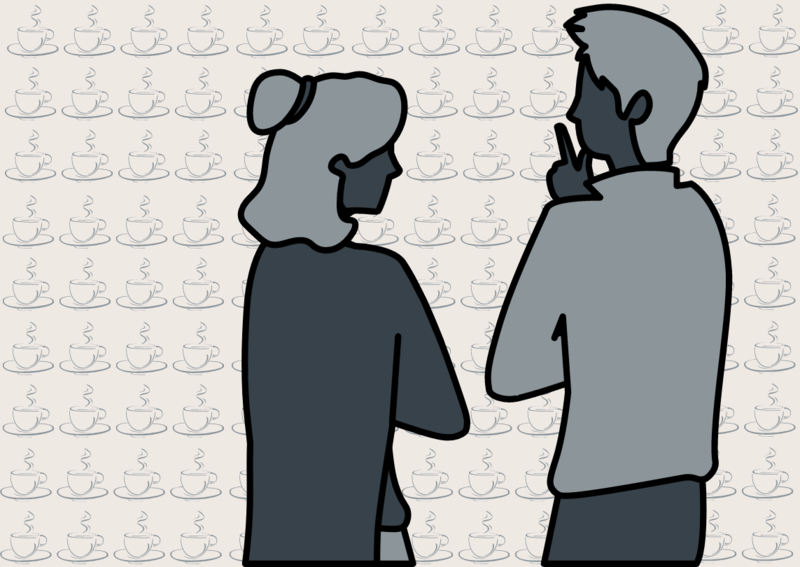Solidarity Through Conversations About Privilege
As a mixed-race Jewish woman, I’m no stranger to discussions about privilege. My friends, who I love dearly, view me as their go-to person of color whenever they need a quote for a diversity article. I’ll never forget the time I asked a cashier at a Los Angeles Whole Foods to help me find a yogurt and, as he was walking me to the refrigerator section, he asked me where I "come from." It was a question I’d never gotten before (seeing as I was just twelve), and I, confused, answered that I lived in the San Francisco Bay Area. Strangely, he was also a person of color, but I’ve since come to understand that there’s a certain ambiguity that accompanies being mixed-race that often draws attention.
Growing up, both exposure to social media and a growing list of uncomfortable experiences pushed me towards social justice, and I quickly learned everything I could about racism and sexism. I became vocal in classroom debates and made sure my parents understood the importance of respecting people’s pronouns. If you asked, I would go on for half an hour about the struggle of being mixed-race, or how my lineage has caused different Jewish communities to either support or disclaim me. And although I understood that the world is always changing, I generally considered myself a well-educated person.
Then, I met a guy at a statewide youth conference and found that I still had a lot to learn. We were sitting in a sad, gray conference building in Sacramento, me in my thrifted blazer and him in a suit (which did nothing to distract from the tattoos that started from his fingertips and went up his arms) and, somehow, we struck up a conversation.
As we ran across an empty street to a Starbucks crowded with teens in mismatched suits and continued to talk, it became increasingly clear to us that we had nothing in common. He was white; I was Asian. I lived in the suburbs; he lived in the city. He was male; I was female. He had ink up and down his arms; I would never let a needle close to me. I was Jewish; he was Christian (it's literally part of his name).
But our conversation was fascinating. He grew up in a low-income, single-parent family, which was an experience I knew nothing about. My whole town is fairly affluent, and my community and I commonly acknowledge living in the “Bay Area Bubble.” I’d always understood that I lived a very lucky life, but I’d never given it much further thought.
I was so used to being a member of the minority in terms of race and gender that I’d never truly considered the privileges I had in other parts of my life. My parents made sure I could participate in any activity that I was passionate about, no matter the cost. They provided for me, put me in well-funded schools, and raised me in a healthy, happy home. He didn’t have that in the same way I did. Meanwhile, he never had to worry about walking home alone at night, or experience people making fun of his eyes or asking him why he never learned the languages of his ancestors.
His family experienced a lot of struggle and a lot of loss. As we talked, he told me that he’d graduated from high school a semester early, but he didn’t want to go to college. He wanted to work at a tattoo parlor and maybe own a restaurant one day. For him, that was a future he could reach and a future he knew would allow him to be happy. I believed going to college, getting a degree, and then working for a progressive company is what would bring me joy. It seemed we were on completely different paths.
But, as I look back, I don’t think our paths were that different. We both were born into a world rife with obstacles for us to overcome, and we’ve both found ways to get through them and find what makes us happy. The secret to understanding privilege is realizing that it’s not about getting an upper hand, but rather about recognizing that you don't experience struggles that other people must face. I don’t have to overcome poverty or family difficulties, something that many people take for granted and that I'm now increasingly appreciative of; he doesn’t have to overcome racism or sexism. Our lives will never be exactly the same, but at the same time, they will never be that different.
As we talked, we found something that is precious in our divided, chaotic country: solidarity. Wanting to be acknowledged for overcoming our own obstacles can make it difficult to recognize the obstacles of others. Often, it’s easiest to find this acknowledgement by raising our voices above others’ to draw attention to our experiences. But activism at the expense of others is not activism at all. Classism, racism, and sexism are all systems of oppression, and we should be fighting them rather than each other. Reaching past our own spheres of life to understand the experiences of others is what will unlock real, permanent change.
This piece was written as part of JWA’s Rising Voices Fellowship.





